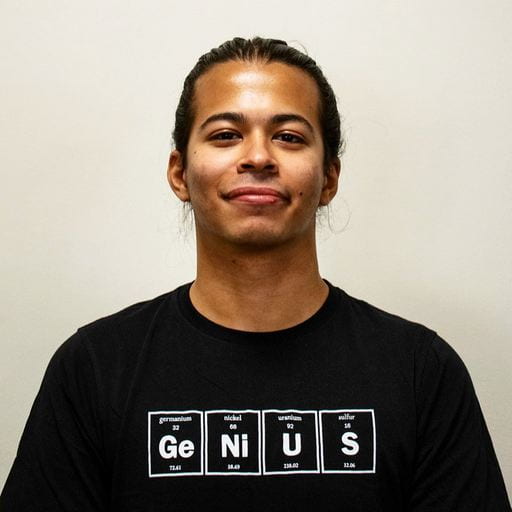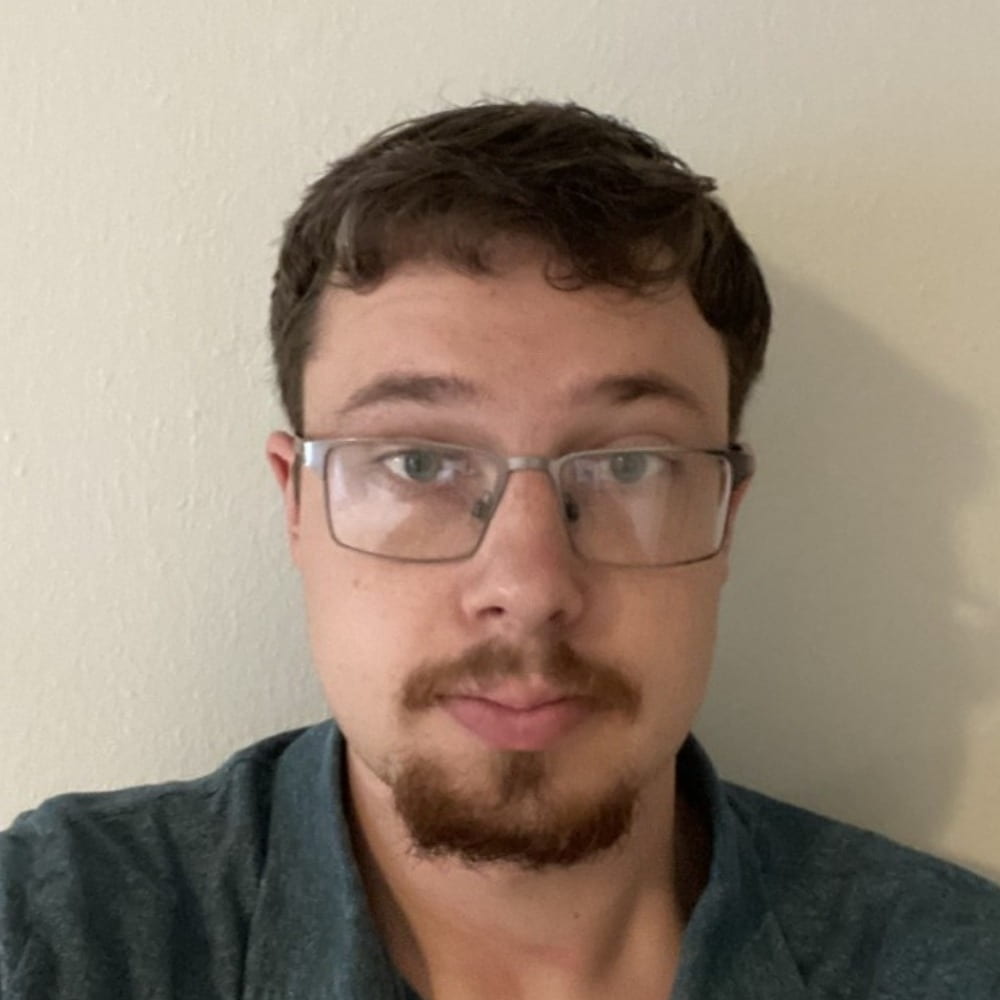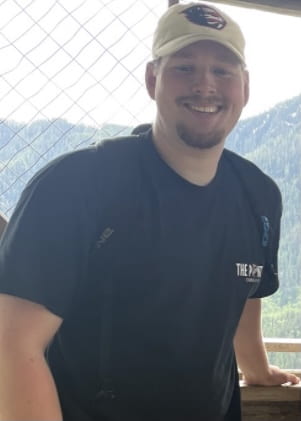
In this edition of the Friday Newsletter, we think about ways to connect intellectually on campus, look ahead to our next speaker, and preview spring courses!
Contents
CHAIR’S WEEKLY MESSAGE
“I Didn’t Know That Was Happening at SMU”
SMU has a small campus, and its population is generally reasonable in size for a university with our ambitions. You’d think, in a “small town” environment like this, everybody would know everything about anything. Nevertheless, I am still astounded to this day how many people accidentally find out about something going on at SMU and remark, “I had no idea that was happening at SMU!“
The last 12 years of my faculty life here are littered with these kinds of stories, and each one reminds me that there is more work to do for all of us in sharing, talking, and building that elusive community that makes all of us stronger together. For example, many years ago a graduate student in our Ph.D. program, who literally grew up within a mile or two of SMU, told me that they went off to college south of Dallas, studied physics, and only later then found out that SMU had both a physics department and a Ph.D. program. While the Ph.D. program dates back to the early 1990s, this story is from the last 10 years … at least two decades after the establishment of the Ph.D. program (and obviously a century since the university, and its physics department, were founded)!
Undergraduate students with whom I speak during chance encounters, and who make the mistake of asking me about physics, will hear some detail from me about a professor’s research or some latest discovery or some application of technology to curiosity-driven inquiry. “I didn’t know that was happening at SMU!” is usually how that conversation evolves, and suddenly they are more excited than ever about being on the Hilltop.
It’s not only limited to students. A young faculty member at SMU recently found out about some work ongoing at the intersection of astrophysics and earth science, as well as work in mathematics on large-scale modeling of the universe. You can guess what they said.
This is no knock on SMU. In fact, it’s a sign of great health that SMU has these places of excellence where people shine in their discipline. Great interdisciplinary approaches arise from great disciplines. In shining so bright these faculty are bold and creative and easily cross the boundaries between disciplines. Despite our small campus size and population, information doesn’t yet flow as freely as we would all prefer. We are constantly discovering that there is a person doing something tangentially related to our own work with whom there may suddenly be the possibility, if not of conversation, perhaps even full-blown collaboration.
Building these communities starts with finding all the people who might be part of it, and that is hard work. It means going to seminars not in your department, mixing and mingling at events on campus, and maybe spending some time at a junior faculty happy hour or two. In a pandemic … well, that’s not always the best idea. Of course, many seminars are still either hybrid or fully remote … so the risks there are pretty minimal, while the rewards of encountering new people and new ideas are nearly maximal.
As we enter the next capital campaign era, let us remember that we are here on the Hilltop and we have strengths. We can be stronger if we learn to cooperate and build together, if we attract more resources to our efforts, and encourage more students to work with us at the frontier of human knowledge. That message should already resonate within departments, though in general it is the case that many (most?) departments on campus are a collection of nearly individual specialists. This is, in part, a consequence of the teaching needs of a program but also due to the need to achieve some breadth in a small(-ish) institution. In physics, we are lucky to have concentration in one area (collider-based particle physics) and growth, but not yet concentration or minimum critical mass, in another (astrophysics and cosmology). Not all departments have that, and it’s important to also remember that in many disciplines concentration is just not the norm.
So we must find each other. Facilitating that is the first challenge. Growing the community by adding new members to achieve those minimum critical masses, and more of those “I didn’t know…” moments, is the harder work that comes along with the first challenge.
As I tell my students in introductory physics, all learning begins with “I don’t know.”
My advice: go to another department’s seminar series. Make a conscious effort to select a department, look up their seminar schedule, block it out in your calendar, and go. To make that easy, we provide in this issue the links to the seminar calendars of other STEM departments on campus, as well as to the “This Week at Dedman College” information clearing house.
We also look ahead to the next event in our own speaker series and sneak peak the final schedule of classes for the Spring 2022 term!
Sincerely,

Stephen Jacob Sekula Chair, Department of Physics |
DEPARTMENT VIEWS
Department Speaker Series continues with Dr. Vernita Gordon speaking on how “Bacteria Respond to Surface Stiffness During Early Biofilm Formation”
The Department’s Speaker Series continues with a seminar by Dr. Vernita Gordon from the University of Texas at Austin. The attachment of bacteria onto a surface, consequent signaling, and the accumulation and growth of the surface-bound bacterial population are key initial steps in the formation of disease-causing, thin, and resistant layers of these microorganisms… also known as biofilms. Yet whether, and how, this attachment is impacted by the mechanics of the surface is not known. Dr. Vernita Gordon will discuss this topic, one that spans the intersection of biology, chemistry, and physics. She will focus on what recent work tells us about our current understanding for the nascent field of bacterial mechanobiology.
This talk should be of particular interest to those interested in the intersection of biology, chemistry, and physics, including biophysical science and biochemistry majors.
Learn more: https://www.physics.smu.edu/web/seminars/
All past speaker series events since August 2020 are available in our YouTube playlist.
Spring 2022 Classes from the Department of Physics
Here is the schedule of classes we will be submitting today for the Spring 2022 term. For the most part, this was determined in the previous academic year as part of our effort to plan ahead by a year. Questions about this schedule should be directed to the Department Chair (Steve Sekula), and specific questions about undergraduate (graduate) courses should be directed to the Director of Undergraduate (Graduate) Studies, Simon Dalley (Fred Olness).
There are some important features of the spring term schedule. First, due to declining enrollments in off-cycle introductory physics classes (e.g. PHYS 1303 in the spring and PHYS 1304 in the fall), which correlate strongly with overall changes in the number of majors in the Lyle School of Engineering, we no longer require two sections of the off-cycle introductory courses. This is amplified by the fact that three research-oriented faculty are on leaves from teaching in Spring 2022. For the Spring 2022 term we are therefore holding only one section (MWF) of PHYS 1303.
In addition, two faculty will be co-teaching the courses PHYS 4311 (upper-level laboratory course) and PHYS 7363 (graduate-level particle physics detection and detectors). We have been experimenting over the past year with faculty co-teaching courses to share the work and develop expertise in courses, and this will continue into the spring.
| Course Number | Course Title | Instructor(s) |
| PHYS 1010 | Honors Introductory Physics | Sekula |
| PHYS 1105 | Mechanics Laboratory | Guarino, Ye |
| PHYS 1106 | Electricity and Magnetism Laboratory | Guarino, Ye |
| PHYS 1303 | Introductory Mechanics | Sekula |
| PHYS 1304 | Introductory Electricity and Magnetism | Balakishiyeva, Nadolsky |
| PHYS 1307 | General Physics I | Dalley |
| PHYS 1308 | General Physics II | Balakishiyeva |
| PHYS 1311 | Elements of Astronomy | Smith |
| PHYS 3305 | Introduction to Modern Physics | Cooley |
| PHYS 4311 | Laboratory Physics | Balakishiyeva, Ye |
| PHYS 4321/7305 | Methods of Theoretical Physics | Scalise |
| PHYS 4368/6368 | Foundations of Modern Cosmology | Meyers |
| PHYS 4392 | Introduction to Electromagnetic Theory | Dalley |
| PHYS 4371/6371 | Stellar Structure and Evolution | Kehoe |
| PHYS 5383 | Advanced Quantum Mechanics | Coan |
| PHYS 6321 | Classical Mechanics | Scalise |
| PHYS 6336 | Quantum Mechanics II | Vega |
| PHYS 7315 | Quantum Field Theory II | Vega |
| PHYS 7363 | Experimental Particle Detection and Detectors I | Balakishiyeva, Ye |

REMINDER: Departmental Social Events On Hold Until Late September
Apart from the Department Speaker Series, which is conducted in hybrid mode with a limited refreshment service beforehand, the department will freeze all other social events until the trajectory of the COVID-19 pandemic on campus can be understood. We will review the data in the second half of September and make a decision about how to proceed beyond that.
Events currently on hold are the Hbar Coffee Bar on Wednesdays and Friday Department Lunch.
FACULTY NEWS
If you have something to share please feel free to send it along. Stories of your activities in research, the classroom, and beyond are very welcome!
STAFF NEWS
The department staff continue to work on behalf of Academic Operations (Lacey Breaux) and Research Operations (Michele Hill). They can be contacted for assistance, or to make appointments for input and help, through the Department Main Office (FOSC 102).
STUDENT NEWS
If you have something to share please feel free to send it along. Stories of students in research, the classroom, internships or fellowships, awards, etc. are very welcome!
Meet a New Graduate Student – Part 3
We asked the new graduate students to tell us a little about themselves, and about their feelings regarding … pineapple on pizza (we recognize this is a culturally anchored question, and broadened it to allow for commentary of the idea of pineapple cooked with tomatoes and cheese).
We’re printing the responses in a series over the next few weeks. Here’s what we learned so far…
Rebecca Moore
I was born and raised within an hour (or three, depending on construction and time of day) of Chicago, Illinois, so it was only natural that I moved to Texas as soon as possible to get away from driving in lake-effect snow every year. I did not attend high school as my parents decided to homeschool me and my eight siblings. Unfortunately, they thought women had no place in higher education and refused to provide me or my sisters with any documentation. After working in the corporate sector for a number of years, I got my GED and earned my associate’s degree at Collin County Community College. It was there that I was first exposed to the sciences and worked on a physics research project. Upon receiving a full-tuition scholarship, I transferred to SMU to finish my bachelor’s degree in physics.
My favorite daily activity is hanging out with my two adorable dogs, Lily and Pippin. When I have some downtime, I enjoy relaxing with a well-run role-playing campaign like D&D or Warhammer Fantasy or with video games like Final Fantasy, Death Stranding, or Dragon Quest. Since I have played the piano since I was three years old, it is not uncommon to find me tickling the ivories with melodies I make up on the fly. I keep telling myself to read more (need to get around to Robert Jordan sometime). If I ever get an extended vacation in a secluded cabin I will bring some books, but if there’s water nearby, fishing would probably win out.
Is pineapple an appropriate topping for pizza? If Dwayne “The Rock” Johnson loves it so much, then it’s good enough for me, but it must be paired with ham or bacon. Or bacon. (Definitely bacon.)
We’ll continue meeting our other first-year graduate students in upcoming Friday newsletters.

Mohammed Aboelela 
Cody Holz 
Rebecca Moore 
Austin Mullins
ALUMNI NEWS
If you are an alum of the doctoral, masters, majors or minor programs in Physics at SMU, or have worked in our program as a post-doctoral researcher, and wish to share news with the community, please send your story to the Physics Department and we’ll work with you to get it included in a future edition.
THE BACK PAGE
Seminars and Other Lectures on Campus
We here provide links to other STEM departments’ seminar series pages. May you find something interesting every week from this collection of disciplines!
The Dedman College event calendar (including “This Week @ Dedman College” events): https://calendar.smu.edu/site/dedmancollege
- Biology: https://www.smu.edu/Dedman/Academics/Departments/Biological-Sciences/About/Lectures
- Chemistry: https://www.smu.edu/Dedman/Academics/Departments/Chemistry/About/Lectures
- The Data Science Institute: https://www.smu.edu/Provost/Data-Science-Institute/Events
- Earth Science: https://www.smu.edu/Dedman/Academics/Departments/Earth-Sciences/About/Lectures
- Mathematics: https://www.smu.edu/Dedman/Academics/Departments/Math/About/Lectures
- Psychology: https://www.smu.edu/Dedman/Academics/Departments/Psychology/About/Lectures
- Statistical Science: https://www.smu.edu/Dedman/Academics/Departments/Statistics/About/Seminar
We looked for lecture series in Computer Science and Electrical Engineering, Mechanical Engineering, and Applied Physiology and Sport Management, but didn’t find obvious links to seminars or colloquia. If you are aware of these web pages, please share them with us!



